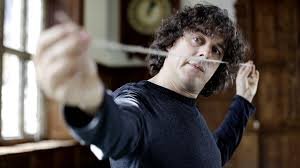Chuckanut
Give me a museum and I'll fill it. (Picasso) Give me a forum ...
Ars Technica is publishing a seven part series on Quantum Mechanics for those of us who aren't physicists. I think it will be interesting.
If quantum mechanics hasn’t profoundly shocked you, you haven’t understood it yet. Everything we call real is made of things that cannot be regarded as real. – Niels Bohr
https://arstechnica.com/science/2021/01/the-curious-observers-guide-to-quantum-mechanics/
If quantum mechanics hasn’t profoundly shocked you, you haven’t understood it yet. Everything we call real is made of things that cannot be regarded as real. – Niels Bohr
Embarking on a series of quantum mechanics articles can be intimidating. Few things trigger more fear than “a simple introduction to physics.” But to the intrepid and brave, I will make a few promises before we start:
- No math. While the language of quantum mechanics is written using fairly advanced math, I don’t believe one has to read Japanese before you can appreciate Japanese art. Our journey will focus on the beauty of the quantum world.
- No philosophy. There has been a fascination with the ‘meaning’ of quantum mechanics, but we’ll leave that discussion for pints down at the pub. Here we will focus on what we see.
- Everything we encounter will be experimentally verified. While some of the results might be surprising, nothing we encounter will be speculative.
https://arstechnica.com/science/2021/01/the-curious-observers-guide-to-quantum-mechanics/




